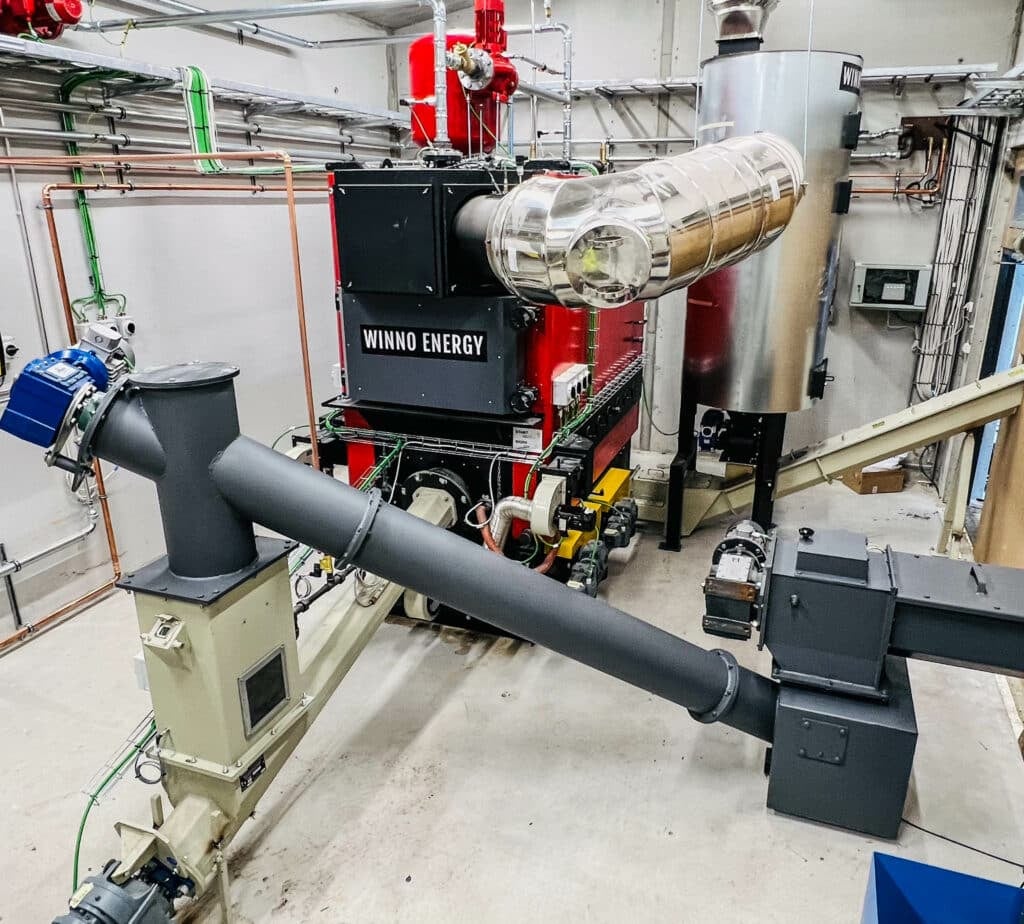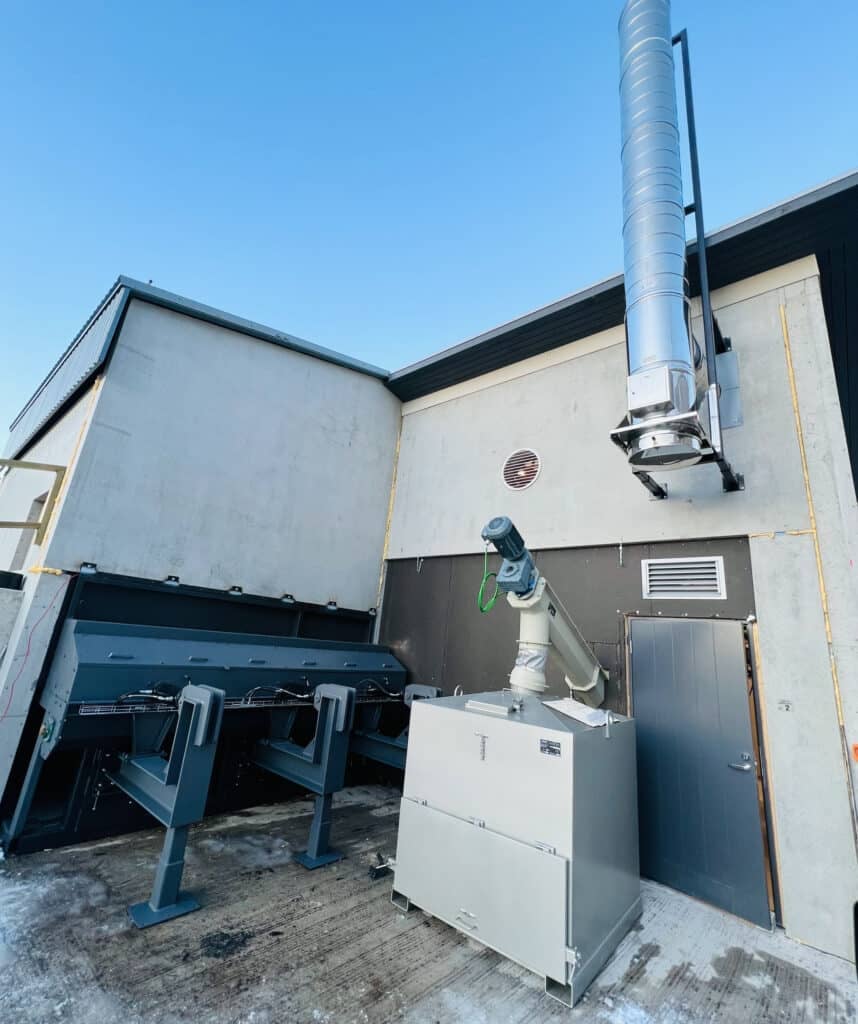Introduction
As industries around the globe continue to prioritize sustainability and seek renewable energy sources, industrial biomass boilers have emerged as a popular choice for eco-conscious businesses in the UK. While the benefits of biomass boilers have been extensively discussed, understanding how these systems work can provide valuable insights into their efficiency and versatility. In this blog post, we will delve into the inner workings of industrial biomass boilers and explain their importance in the context of the UK’s energy landscape.

How Industrial Biomass Boilers Work
Fuel Preparation and Storage
Industrial biomass boilers use organic materials, such as wood chips, wood pellets, agricultural residues, or energy crops, as fuel. These materials must be appropriately processed and stored before they can be fed into the boiler. The fuel preparation may include drying, chipping, or pelleting the biomass, depending on the specific requirements of the boiler system. Proper storage is essential to prevent moisture absorption, which can lower the fuel’s energy content and affect the combustion process.
The best storage solution is hydraulic walking floor. Winno Energy has supplied numbers of walking floor systems to Arctic Nordic environment which can handle automatically frozen solid wood fuels. It’s bit higher investment, but reduces operational costs during the lifetime
Fuel Feeding and Combustion
The biomass fuel is automatically fed into the boiler’s combustion chamber through a conveyor or auger system, ensuring a consistent supply of fuel. Inside the combustion chamber, the fuel is burned at high temperatures, generating heat. During combustion, the carbon in the biomass fuel reacts with oxygen, producing carbon dioxide and water vapor. As biomass is considered carbon-neutral, the carbon dioxide emissions are offset by the carbon absorbed by the plants during their growth.
Heat Transfer and Steam Production
The heat generated during combustion is transferred to water, which is circulated through a network of tubes in the boiler. As the water absorbs the heat, it turns into steam. The steam is then directed to the desired location within the industrial facility, where it can be used for various processes, such as heating, drying, or powering steam turbines to generate electricity.
Emission Control and Ash Removal
Industrial biomass boilers are equipped with advanced emission control systems to minimize the release of pollutants, such as nitrogen oxides, sulfur oxides, and particulate matter. These systems may include electrostatic precipitators, fabric filters, or scrubbers. In addition to controlling emissions, ash generated during combustion must be periodically removed from the boiler and disposed of or utilized in other applications, such as soil amendments or construction materials.

The Importance of Industrial Biomass Boilers in the UK
Decarbonization of the Energy Sector
As the UK pursues ambitious climate goals, such as achieving net-zero carbon emissions by 2050, industrial biomass boilers play a critical role in decarbonizing the energy sector. By replacing conventional fossil fuel-based systems, biomass boilers help reduce greenhouse gas emissions and promote a cleaner, greener energy landscape
Support for Rural Economies
The biomass industry supports rural economies in the UK by creating jobs in the production, processing, and transportation of biomass fuels. By encouraging local fuel sourcing, biomass boilers foster regional economic growth and reduce dependency on imported fossil fuels.
Energy Security and Diversification
Industrial biomass boilers contribute to the UK’s energy security by diversifying the nation’s energy mix. Relying on a variety of energy sources reduces the risk of supply disruptions and helps insulate the UK from fluctuations in global energy markets.
Waste Reduction and Resource Management
Biomass boilers can utilize a wide range of organic materials, including waste products from agriculture, forestry, and manufacturing. By converting these waste materials into valuable energy, biomass boilers contribute to a more sustainable and circular economy, promoting resource efficiency and waste reduction.
Conclusion
Industrial biomass boilers are an essential component of the UK’s transition to a low-carbon, sustainable energy future. By understanding how these systems work, businesses can appreciate the technology’s efficiency, versatility, and environmental benefits. As industries continue to prioritize sustainability, industrial biomass boilers will undoubtedly play an increasingly prominent role in the UK’s energy landscape.


